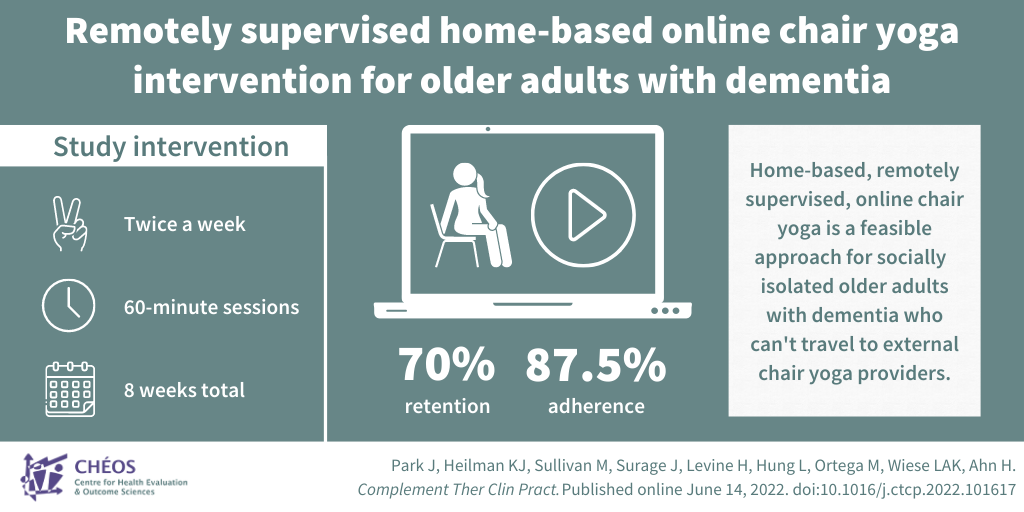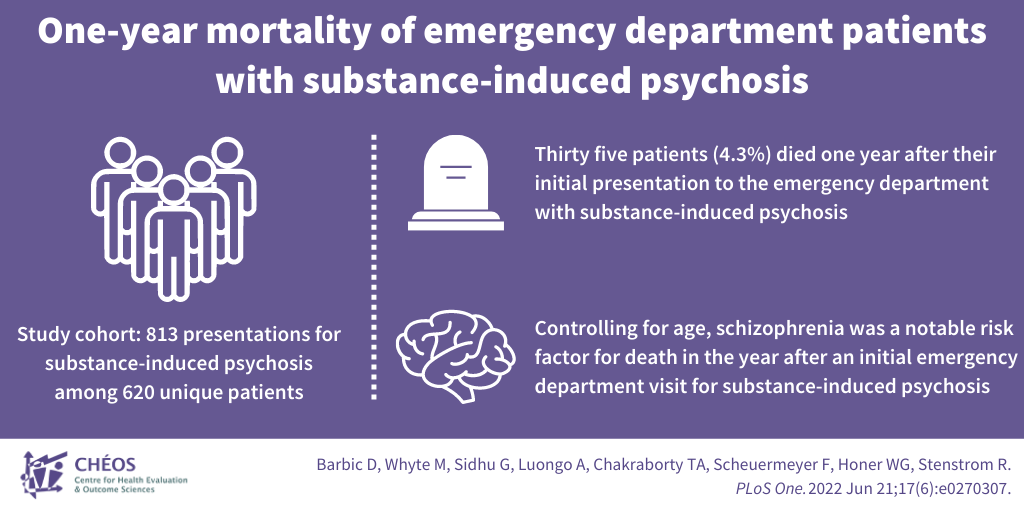The Evidence Speaks Series is a recurring feature highlighting the latest in CHÉOS research. This series features summaries of select publications and is designed to keep media and the research community up to date with CHÉOS’ current research results in the health outcomes field.
To ensure this research is quick and easy to share, we are now providing social cards that you are free to save and use as you see fit.
Private insurance is associated with significantly better treatment coverage for depression
Vigo DV, Kazdin AE, Sampson NA, Hwang I, Alonso J, et al. Determinants of effective treatment coverage for major depressive disorder in the WHO World Mental Health Surveys. Int J Ment Health Syst. 2022;16(1):29.
Depression is the leading cause of disability worldwide; however, under-spending on treatment is common and many people with depression are lacking care. Using data from 17 WHO World Mental Health Surveys, conducted in 15 countries, CHÉOS Scientist Dr. Daniel Vigo and colleagues examined the extent to which socio-economic and demographic characteristics, insurance, and severity of depression was associated with effective treatment coverage, whereby people receive good-quality care and adhere to it. They found that high levels of education, private insurance, and being aged between 30 and 59 were associated with receiving effective treatment coverage. Further analysis showed that, in low- or middle-income countries, the only significant association with effective treatment coverage appeared to be private insurance. These results highlight areas to be considered when developing targeted interventions, such as improved financial protection and population-level interventions to reduce stigma and increase acceptability and accessibility of mental health services.

—
Home-based, online chair yoga could be a feasible intervention for older adults with dementia
Park J, Heilman KJ, Sullivan M, Surage J, Levine H, Hung L, Ortega M, Wiese LAK, Ahn H. Remotely supervised home-based online chair yoga intervention for older adults with dementia: Feasibility study. Complement Ther Clin Pract. Published online June 14, 2022.
Chair yoga is a safe, low-impact intervention that can help manage physical and psychological symptoms in older adults with dementia, but some of these adults may be unable to travel outside of their homes to access it. CHÉOS Scientist Dr. Lillian Hung and team assessed the feasibility of remotely supervised, home-based, online chair yoga for older adults with dementia and investigated whether chair yoga was associated with clinical outcomes, such as mobility and loneliness. Delivering the hour-long online chair yoga intervention to ten older adults with dementia twice weekly for eight weeks, the investigators found that both retention and adherence to the intervention were high, at 70 and 87.5 per cent, respectively. Subsequently, they determined that the intervention was a feasible approach for managing physical and psychological symptoms in socially isolated older adults with dementia. Looking ahead, remotely collecting cardiac and psychosocial data will likely provide additional pertinent information around the impacts of home-based, online chair yoga.

—
Schizophrenia may increase the risk of death among people who use illicit substances
Barbic D, Whyte M, Sidhu G, Luongo A, Chakraborty TA, Scheuermeyer F, Honer WG, Stenstrom R. One-year mortality of emergency department patients with substance-induced psychosis. PLoS One. 2022;17(6):e0270307.
Psychosis is a known complication of non-prescription drug use. CHÉOS Scientists Drs. David Barbic and Rob Stenstrom, Program Head of Emergency Medicine Dr. Frank Scheuermeyer, and researchers from UBC studied the one-year mortality of emergency department (ED) patients with substance-induced psychosis (SIP). Using data from a hospital ED database, the research team identified 813 presentations for SIP among 620 unique patients. A total of 35 patients (4.3 per cent) died within a year of their initial presentation to the ED with SIP. Schizophrenia in particular was notably linked with an increased risk of one-year mortality. This study highlights that there is a need for compassionate, trauma-informed, accessible care to address co-existing mental health, addictions, and social determinants of health challenges faced by marginalized and at-risk populations to potentially reduce the risk of one-year mortality and improve their health and wellbeing overall.




